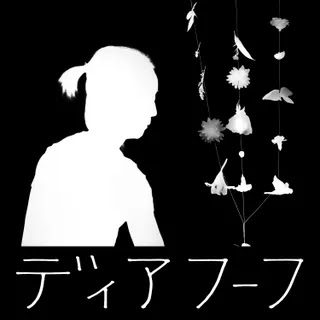A devotional prayer for ill relatives inspires some of the Baltimore ambient musician’s most engulfing and moving songs yet.
On last year’s Parted Plains, Baltimore ambient musician Ami Dang used other people’s stories to express herself, looking to Indian and Middle Eastern folktales as inspiration for avant-garde, beat-driven sitar and synth soundscapes. The songs were admirably dynamic and ambitious—boisterous one moment and brooding the next—but also felt disorganized. The mesh of sounds never quite related to the texts they referenced, or coalesced into something greater than their sum. On her latest project, Meditations Mixtape Vol. 1, Dang slows down and turns inwards, making music inspired by the Sikh hymns her family listens to together.
A few months ago, Dang’s uncle and aunt became sick with coronavirus. Her mother asked her to perform a shabad, or a hymn, at their family’s online celebration of Vaisakhi, a Sikh holiday. After her performance, Dang was reminded of the power of her voice and of these prayers. Over about 10 days in April, while in isolation, she recorded the four songs that appear on this EP. Dang’s emotional connection to this music is evident; these are some of her most engulfing and moving songs yet.
Though devotional music often improvises from traditional song structures, most Hindustani classical music begins with a freeform introduction when the musician plays with melody and sets the mood but hasn’t yet introduced any meter. The second phase is marked by the introduction of a percussionist, and the third by an increase in tempo. With the exception of “Simplicity Mind Tool,” which uses an acidic synth line to establish a gnawing sense of propulsion, Dang’s songs linger in the exploratory phase. Each meanders and expands, filling the room like a pleasant fog. On “Satnam Waheguru” and “Tension, Tension, Release,” synth and sitar seem to intertwine on the atomic level. They create a droning cloud that cushions Dang’s chanted vocals, which sound richer and more mature than ever. “Ajooni” is wordless but similarly expansive, as a twangy sitar line ambles across starry synth.
Inspired by introductions, these songs do sound somewhat unfinished, like exercises rather than completed pieces. If they only unfurled a bit further, they would be even more immersive. As it is, each song on Meditations Mixtape Vol. 1 feels a bit like talking to a good friend on the phone and being forced to hang up just as you move beyond casual chit chat. The album title suggests future iterations, and you can’t help but think ahead, as if this first volume were a warm-up to something greater.
Though Meditations Mixtape Vol. 1 grew from personal experience, it is also intended to be of service. Whether Dang is chanting the Sikh meditative phrase “Satnam waheguru,” or simply singing the notes “ni” and “sa” (the Hindustani classical equivalent of “ti” and “do”), she encourages the listener to ruminate on unity and togetherness. The lyrics of “Simplicity Mind Tool”—“By meditating and vibrating on oneness with humanity, you will become steady and stable”—make this intention explicit. In liner notes accompanying “Tension, Tension, Release,” Dang encourages the listener to breathe in and out with the music, meditate, and “re-evaluate your relationship to the material goods around you and remember that the only thing that is going to get us through this is love, belief in humanity and lifting up everyone.” Though the song is certainly soothing, you’ll have to do the work of personal transformation yourself.
But for me, who doesn’t come to the album with particular spiritual intent, the power of these songs lies not so much in their utility as in the poignancy and specificity of Dang’s perspective. It can sometimes be hard to understand what unity and togetherness mean in the abstract, but it’s not difficult to empathize with someone who’s moved to pray for a family member. There’s a new focus to these songs, a confidence that’s blossomed as Dang strips back her sound and relays stories only she can tell. When you imagine her recording them in solitude, reaching out to someone unreachable, the already evocative vocal harmonizations transmit a gut-wrenching mixture of mourning and hope.
View the original article here
















0 comments:
Post a Comment